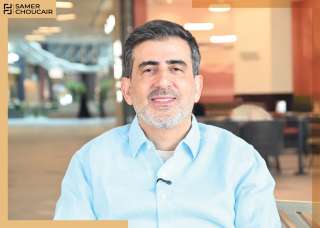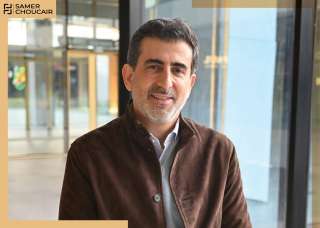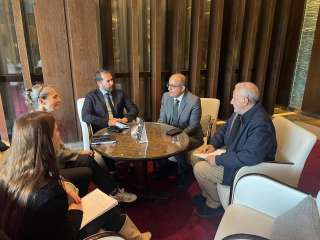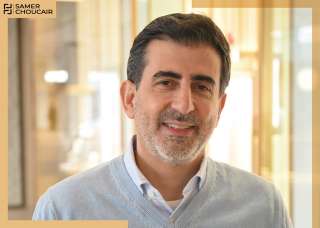What is Democracy in the 21st century?


بقلم / يارا عون
Democracy - is a controversial topic of discussion in our modern world, but what did prominent thinkers, creators of the origins of Western philosophy, reflect on democracy and its implications on politics, society, and morality?
During the classical age, which runs from the 500 century B.C.E. to the 400 century B.C.E., the Greek polis Athens was in its accomplished era, experiencing direct democracy, which cultivated freedom for philosophy and art, giving space to eminent philosophers such as Socrates, Plato, and Aristotle (Rothchild, 2007).
Subsequently, each of these ambitious thinkers had their take on democracy and how it is not a goal but a tool for society; to aim for the greater good of how individuals can live happily (Ivanovski, 2022).
Likewise, the Philosopher Socrates (470 B.C.E.–399 B.C.E.) used to question everything, especially the meaning of life and became known for his thought-provoking art of questioning (Makeup & Breakup, 2021).
Moreover, Socrates thought that democracy is incapable of providing a space for questioning as it promotes and argued that democratic tools such as voting should not be on impulse but a skill that needs to be taught and practiced, not entrusting the democratic approach to provide educated and well-trained individuals to rule the society (Ivanovski, 2022). Most of his fears were rooted in how democracy can be easily baited by the concept of demagoguery, where a charismatic politician could sweet talk the masses to convey his agenda and turn the people into mob rule; this fear of his came true when swayed people voted in the Assembly for his death, for the charges of corrupting youth minds, when in reality the cause was Socrates questioning the wisdom of the elite in Athens (Ivanovski, 2022).
Similar to his teacher, Plato (428/427 B.C.E.–348/347 B.C.E.) criticized democracy; in one of his dialogues with Socrates mentioned in his book The Republic, Socrates argued that democracy could lead to a radical form of freedom, whereas Plato further explains that when people seek excessive freedom, it will give the rise for a tyrant to manipulate people into thinking he is going to protect their extreme rights when in reality he will surround himself with easily controlled people, that are easy to bribe and cast out the educated thinkers (Ivanovski, 2022).
Furthermore, Plato was an idealist, unlike his student Aristotle who was a realist; he believed that causes have reasons and that we can reach a conclusion when we engage in logical discussion with supporting claims (Makeup & Breakup, 2021). Moreover, Aristotle (384 B.C.E.–322 B.C.E.) introduced the concept of the (golden mean), which is the concept of finding balance in our actions and virtues; for example, life should not be too dull or too flashy (The School of Life, 2014). Furthermore, Aristotle's view of democracy was unlike his teacher Plato and Socrates; he believed democracy was a favored type of governance based on the concept of the golden mean, where he observed the oligarchy as the rule of riches and democracy as the rule of poor, and since they were the majority, that risks that democracy could lead to tyranny, and the resolution to avoid such situation is to educate the masses on democracy and the rule of law (Ivanovski, 2022).
As for my opinion, I believe democracy is an ever-evolving concept; at the same time, the application of democracy should be custom-made; we can not apply the method of direct democracy from Athens in our modern world, as other factors exist, for example, technological advances, such as social media provide a space for democracy where individual power is amplified (Meta, 2020).
Consequently, I somewhat agree with Aristotle; although democracy is favored, it needs extreme thoughtfulness when applied; for example, during the 2011 youth-led Yemeni revolution, when democracy in the street flourished, demagogues managed to sway people for their benefit, hijacking the revolution and casting the intellectuals aside, turning hopes for a democratic country into tyranny (Al-Sakkaf, 2011).
In conclusion, democracy is an ongoing process that takes time and patience, but in a world where everything evolves so fast, can modern societies grasp the true meaning of democracy?
Words count: 687
-----
References:
Al-Sakkaf, N. (2011, April 27). The Politicization of Yemen’s Youth Revolution. Carnegie Endowment for International Peace. Retrieved April 13, 2023, from https://carnegieendowment.org/sada/43735
Ivanovski, S. (2022, May 21). What did Ancient Greek philosophers think about democracy? Life Style Democracy. Retrieved April 12, 2023, from https://www.lifestyledemocracy.com/what-did-ancient-greek-philosophers-and-scholars-think-about-democracy/
Makeup & Breakup. (2021, October 8). Socrates, Plato and Aristotle – Philosophical Thoughts of Three Great Thinkers. Retrieved April 12, 2023, from https://makeupandbreakup.com/2018/11/02/socrates-plato-and-aristotle-philosophical-thoughts-of-three-great-thinkers/
Meta. (2020, November 19). Hard Questions: What Effect Does Social Media Have on Democracy? Retrieved April 13, 2023, from https://about.fb.com/news/2018/01/effect-social-media-democracy/
Rothchild, J. A. (2007). Introduction to Athenian Democracy of the Fifth and Fourth Centuries BCE. Social Science Research Network. https://doi.org/10.2139/ssrn.1020397
The School of Life. (2014, October 29). PHILOSOPHY - Aristotle [Video]. YouTube. Retrieved April 13, 2023, from https://www.youtube.com/watch?v=csIW4W_DYX4


























